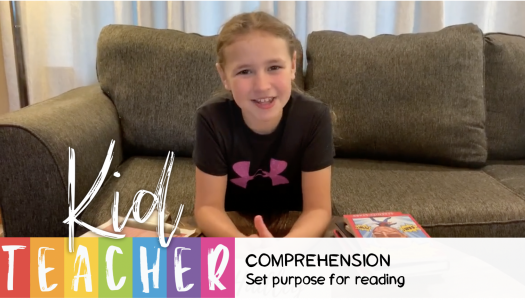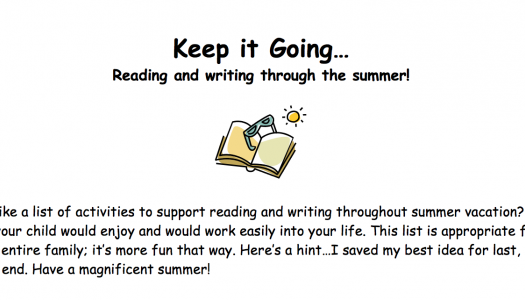Strategies for Avoiding the Summer Reading Slide
Join Our Community
Access this resource now. Get up to three resources every month for free.
Choose from thousands of articles, lessons, guides, videos, and printables.
With the approach of the end of school, the summer slide or loss of reading progress looms in the forefront of a multitude of teachers' minds. For many students, progress gained through their efforts and extended reading practice, in addition to our focused instruction and coaching, can teeter on the precipice of being lost when they walk out the door the last day of school.
Extensive research has been conducted around these summer setbacks and the implications for achievement gaps we see in school. Most notably, Richard Allington and Anne McGill-Franzen conducted a three-year research study addressing ways to offset the dreaded slide. Those of us working with students who rarely touch a book over the summer are all too familiar with these setbacks.
In addition to the suggestions provided by Allington and McGill-Franzen for keeping books in children’s hands in an effort to offset the summer slide, we have written about other ways to support our readers over the summer. Here you can read about ways to keep the visual aid of the CAFE Menu present at home.

Another successful suggestion for keeping the forward momentum of reading growth over the summer is to have students build upon their daily work of setting goals for their reading. During the last week
s of school, time is spent in whole-group and small-group discussions as well as conferring sessions with each student about their summer reading goals. Each child sets a goal regarding books they are looking forward to reading over the summer. These books are often titles culled from books we have read together over the course of the year, books recommended by friends, and those written on topics of interest or by favorite authors.
Students set another goal for the number of books they will read over the summer as well as or in addition to a goal for the amount of time they are going to read each day. There is a direct
connection made to Daily 5 and the fact that we read to self each day because it is the best way to become a better reader and it is fun.
The third goal is regarding the reading strategies they want to be certain to remain focused on. Careful attention is paid to those strategies they have found success with over the year as well as strategies that need additional work.
Students are then guided to write three letters to themselves that will be mailed to them over the summer. The letters contain a friendly reminder to themselves of their three goals, words of encouragement, and emphasis on the importance of continuing their progress over the summer by reading.
I love returning to school after the summer break and hearing how these reminder letters prompted students to keep the focus on their forward momentum.






